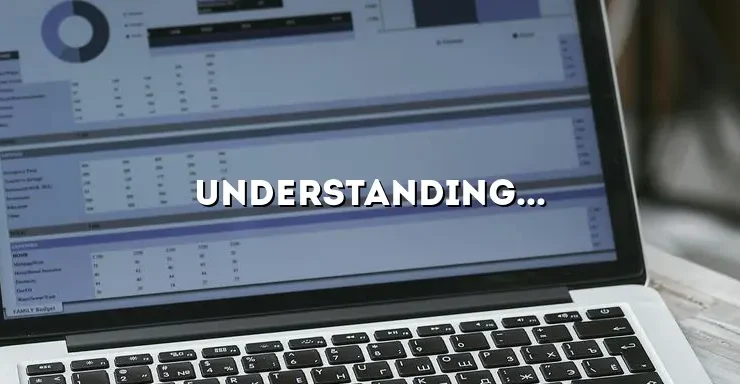
When it comes to insurance in the state of Florida, the Florida Insurance Code plays a crucial role in regulating and governing the industry. This code encompasses a wide range of laws and regulations that aim to protect both insurance providers and policyholders. Whether you are an insurance professional or a resident of Florida looking to navigate the complexities of insurance policies, understanding the Florida Insurance Code is essential.
In this comprehensive guide, we will delve into the various aspects of the Florida Insurance Code, providing you with a detailed understanding of its key provisions and implications. From insurance licensing requirements to consumer protection measures, we will cover it all. So, let’s dive in and explore everything you need to know about the Florida Insurance Code.
Overview of the Florida Insurance Code
The Purpose and Scope of the Florida Insurance Code
The Florida Insurance Code is a comprehensive set of laws and regulations that govern the insurance industry in the state. Its primary purpose is to protect policyholders from unfair practices, ensure the financial stability of insurance providers, and maintain a fair and competitive insurance marketplace. The code covers various aspects of insurance, including licensing, policy requirements, claims handling, and consumer protection.
The Structure of the Florida Insurance Code
The Florida Insurance Code is organized into different sections, each focusing on specific areas of insurance regulation. These sections include provisions related to licensing, insurance contracts, policy requirements, claims handling, and penalties for violations. The code is regularly updated to reflect changes in the insurance landscape and to address emerging issues and concerns.
Regulatory Bodies Involved
The Florida Office of Insurance Regulation (OIR) is the primary regulatory body responsible for enforcing and interpreting the Florida Insurance Code. The OIR oversees the licensing and regulation of insurance professionals, reviews insurance policy forms, and investigates complaints against insurance providers. Additionally, the Department of Financial Services (DFS) plays a role in enforcing the code’s provisions and ensuring compliance.
Insurance Licensing and Regulation
Licensing Requirements for Insurance Professionals
Obtaining a license to practice insurance in Florida is a crucial step for insurance professionals. The Florida Insurance Code sets specific requirements for licensing, including educational qualifications, pre-licensing courses, and passing state exams. Different types of insurance, such as life insurance or property and casualty insurance, may have specific licensing requirements that professionals must meet.
Ongoing Obligations for Licensed Professionals
Once licensed, insurance professionals are subject to various ongoing obligations outlined in the Florida Insurance Code. These obligations include continuing education requirements to ensure professionals stay up to date with industry trends and changes. Additionally, licensed professionals must adhere to ethical standards and conduct business in a manner that is fair, honest, and transparent.
Disciplinary Actions for Violations
In cases where insurance professionals fail to comply with the Florida Insurance Code’s provisions, disciplinary actions may be imposed. The code outlines a range of penalties that can be levied against licensed professionals, including fines, license suspensions, and license revocations. These disciplinary actions aim to maintain the integrity of the insurance industry and protect consumers from unethical practices.
Insurance Policies and Coverage
Types of Insurance Policies
The Florida Insurance Code covers various types of insurance policies, including auto insurance, homeowner’s insurance, health insurance, and more. Each type of policy has its own specific requirements and coverage provisions outlined in the code. For example, auto insurance policies in Florida must meet certain minimum coverage limits to ensure that drivers are financially protected in the event of an accident.
Policy Requirements and Limitations
The Florida Insurance Code sets forth specific requirements and limitations for insurance policies offered in the state. These requirements may include provisions related to coverage limits, deductibles, and optional coverage options. The code also addresses limitations and exclusions that insurance providers may impose, such as pre-existing condition exclusions in health insurance policies.
Consumer Rights and Protections
The Florida Insurance Code prioritizes the protection of policyholders’ rights and ensures fair treatment by insurance providers. The code outlines various consumer protection measures, including provisions related to policy cancellations, premium refunds, and disclosures. For example, the code requires insurers to provide clear and concise policy documents that outline the terms, conditions, and coverage provided.
Claims Handling and Dispute Resolution
Claims Handling Procedures
The Florida Insurance Code establishes guidelines for the handling of insurance claims to ensure fair and prompt resolution. Insurers are required to establish procedures for policyholders to report claims and must promptly investigate and process claims. The code also specifies the timeframe within which insurers must acknowledge and respond to claims.
Policyholder Rights in Claims Handling
Policyholders have certain rights during the claims handling process, as outlined in the Florida Insurance Code. These rights include the right to receive timely updates on the status of their claims, the right to dispute claim denials, and the right to seek legal representation if necessary. The code aims to protect policyholders from unfair claim denials or delays and provides mechanisms for resolving disputes.
Dispute Resolution Mechanisms
In cases where a dispute arises between a policyholder and an insurance provider, the Florida Insurance Code provides various mechanisms for resolution. These mechanisms may include mediation, arbitration, or filing a complaint with the regulatory authorities. The code aims to ensure that policyholders have access to fair and efficient dispute resolution processes.
Consumer Protection Measures
Policy Cancellation and Non-Renewal
The Florida Insurance Code includes provisions that protect policyholders from unfair policy cancellations or non-renewals. Insurers are required to provide advance notice to policyholders before canceling or non-renewing their policies. This notice period allows policyholders to find alternative coverage and avoid gaps in their insurance protection.
Premium Refunds and Adjustments
In cases where a policyholder cancels their insurance policy mid-term, the Florida Insurance Code stipulates that they may be entitled to a premium refund or adjustment. The code sets guidelines for calculating the refund amount and ensures that policyholders are not financially penalized for canceling their policies.
Disclosure Requirements
The Florida Insurance Code emphasizes the importance of transparency and requires insurers to provide clear and accurate information to policyholders. Insurers must disclose all relevant policy details, including coverage limits, exclusions, and any additional fees or charges. This ensures that policyholders have a complete understanding of their insurance coverage.
Penalties and Enforcement
Penalties for Violations
The Florida Insurance Code imposes penalties on insurance providers or professionals who violate its provisions. These penalties can range from monetary fines to license suspensions or revocations, depending on the severity of the violation. The code aims to deter unethical practices and maintain high standards within the insurance industry.
Enforcement by Regulatory Bodies
The Florida Office of Insurance Regulation (OIR) and the Department of Financial Services (DFS) are responsible for enforcing the Florida Insurance Code. These regulatory bodies have the authority to investigate complaints, conduct audits, and take appropriate actions against violators. The goal is to ensure compliance with the code’s provisions and protect the interests of policyholders.
Recent Developments and Updates
Emerging Insurance Trends
The insurance industry is continually evolving, and the Florida Insurance Code is updated to address emerging trends and challenges. Recent developments may include changes in coverage requirements, the introduction of new policies, or adjustments to consumer protection measures. Staying informed about these developments is essential for insurance professionals and policyholders alike.
Amendments to the Florida Insurance Code
The Florida Insurance Code is periodically amended to reflect changes in legislation or to address any gaps in the existing regulations. These amendments may result from changes at the federal level, court decisions, or industry-specific developments. Being aware of these amendments ensures that insurance professionals and policyholders remain compliant with the most up-to-date regulations.
In conclusion, the Florida Insurance Code serves as the cornerstone of the insurance industry in the state, providing a comprehensive framework for the regulation and governance of insurance practices. By understanding its provisions and implications, both insurance professionals and policyholders can navigate the complexities of the Florida insurance landscape with confidence and ensure fair treatment for all parties involved.
So, whether you are looking to obtain an insurance license, secure appropriate coverage, or resolve a claim dispute, this guide equips you with the knowledge and insights needed to make informed decisions and protect your rights under the Florida Insurance Code.






